Pastoral Backstory 10.10.13

October 10th, 2013
Entering one another’s frame, understanding one another’s condition, responding to one another’s need–through time and attention, with courage and compassion, in word, deed, and prayer: that was our first crack last Sunday at attempting a definition of what it means to be faithfully present to one another. (For those just joining us, here’s the sermon that began our series on a vision of Faithful Presence).
Much, if not more, conspires against that kind of community as conduces to it. Let me mention briefly two things that militate against what we long to see among us, and one thing, certain to come, that can bind us together like few things can.
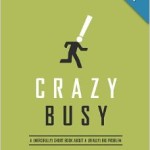 First, Kevin DeYoung has written a mercifully short book about one of the many plagues of the modern age: our enchantment with busy-ness. Crazy Busy is full of statistics comparing workload across cultures and eras, and documents the inevitable consequences we have to dismiss in order to suffer from them. As we said during Q&A last Sunday, topping the list of what precludes faithful presence may be our penchant for filling nearly every waking hour with something to do. DeYoung isn’t advocating for the monastic life (not that there’s anything wrong with that); devoting ourselves to many things bears no intrinsic error. But given our finite amount of resources and a seemingly infinite supply of opportunities, unless we establish (and follow) certain priorities, DeYoung insists, we will follow the culture’s way of giving ourselves to more than we can reasonably handle. One thing I’ve taken from his book so far–one that could do most to free up a measure of time for faithful presence–is a question he poses to us about all we’re ostensibly doing for others (whether for our children or our church). “Who is this for?” he bids us ask ourselves, “am I trying to do good or to make myself look good?” Applying that question to all we engage in might yield some surprising discoveries about true motives. Should we discover an underlying self-interest beneath our apparent sacrificial effort we might have just found something to cut from the schedule that would free us for faithful presence. And I don’t mean simply substituting one activity for another, but replacing a soul-depleting effort for a life-giving one. Crazy Busy has plenty to share in a book that, thankfully, won’t take up too much of your time.
First, Kevin DeYoung has written a mercifully short book about one of the many plagues of the modern age: our enchantment with busy-ness. Crazy Busy is full of statistics comparing workload across cultures and eras, and documents the inevitable consequences we have to dismiss in order to suffer from them. As we said during Q&A last Sunday, topping the list of what precludes faithful presence may be our penchant for filling nearly every waking hour with something to do. DeYoung isn’t advocating for the monastic life (not that there’s anything wrong with that); devoting ourselves to many things bears no intrinsic error. But given our finite amount of resources and a seemingly infinite supply of opportunities, unless we establish (and follow) certain priorities, DeYoung insists, we will follow the culture’s way of giving ourselves to more than we can reasonably handle. One thing I’ve taken from his book so far–one that could do most to free up a measure of time for faithful presence–is a question he poses to us about all we’re ostensibly doing for others (whether for our children or our church). “Who is this for?” he bids us ask ourselves, “am I trying to do good or to make myself look good?” Applying that question to all we engage in might yield some surprising discoveries about true motives. Should we discover an underlying self-interest beneath our apparent sacrificial effort we might have just found something to cut from the schedule that would free us for faithful presence. And I don’t mean simply substituting one activity for another, but replacing a soul-depleting effort for a life-giving one. Crazy Busy has plenty to share in a book that, thankfully, won’t take up too much of your time.

Secondly, for every article about new technology there’s probably ten more that wonder if the advance isn’t more like a retreat. Our Q&A mused about technology’s effects–both salutary and stagnating–on our capacity for faithful presence. One article (HT: Justin Isaac) spoke directly to technology’s unintended–unencoded–effects on our capacity for attentiveness. The author asks:
“We watch a 30-second ad in exchange for a video; we solicit a friend’s endorsement; we freely pour sentence after sentence, hour after hour, into status updates and stock responses. None of this depletes our bank balances. Yet its cumulative cost, while hard to quantify, affects many of those things we hope to put at the heart of a happy life: rich relationships, rewarding leisure, meaningful work, peace of mind. What kind of attention do we deserve from those around us, or owe to them in return? What kind of attention do we ourselves deserve, or need, if we are to be ‘us’ in the fullest possible sense?”

None would dispute what technology can do, but others who’ve sought to unplug have discovered the attitude we bring to the technology is as much the decisive factor in its effects as the technology itself. We’ve mentioned before how technology can allow us to create tightly-controlled and thus inauthentic online versions of ourselves. But with the same sobriety of self and submission godliness we’re meant to apply to all things we can use tools–even the sophisticatedly technological–to good purpose. And even for the flowering of faithful presence. (Click on “The City” icon to the right for one example)
Finally, no individual nor community is immune to it, but its outcomes are integrally related to how both individual and community respond. I’m talking about suffering. No one can suffer for you, yet suffering is a community project. So the ethos of faithful presence is to some degree determinative of what comes of our suffering. Tim Keller’s latest book released last week, Walking with God through Pain and Suffering. makes a case for the supremacy of Christian faith in how individuals and communities can face–and even flourish amid–suffering. You can watch him give a summary of the book and engage in some Q&A here.
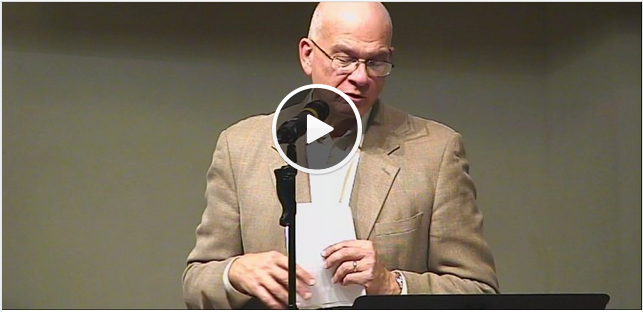
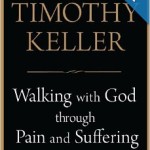
Customary to his style, he mines the wisdom of several disciplines (philosophical, psychological, sociological) while doing thoroughgoing cultural and comparative-religion analysis, all in an effort to highlight the nuanced view of faithful suffering outlined in Scripture. Adding authenticity to his argumentation are the real-life stories of suffering people at the end of each chapter–some still reeling from the aftermath, others not yet clear of the storm, but all with a story of hope to tell. Common to each story is the ground note of community which, rather than leave them to suffer alone or avoid the fear of entering into a “house of mourning” (Eccl 7:2), took up the call to bear the burdens of one another and weeping with those who weep. Church, suffering is already part of our story and it touches more lives among us than you’re probably aware. The quality of our faithful presence is, and will in some sense always be, indexed to how well we suffer alongside one another. That suffering has such propensity for tearing apart makes it all the more remarkable that it can tightly bind us together–and sometimes just by sitting.
Much conspires against this vision, but much conduces to it.
This Sunday we’ll turn our attention to Philippians 2:1-11 and find, among other things, what perhaps most conspires against our faithful presence to one another:
- the greatest threat to it
- the only solution for it
- the ultimate source for its solution
*****
Community notes
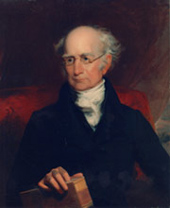 As we’ve mentioned before you’ll have a chance to hear from our elder candidates, Jim Akovenko and Hugh Comer, both this and next Sunday for an informal time of interview and Q&A. This Sunday I’ll start with questions about their background and sense of calling to this office. Next week I’ll ask them about their sense of vision for CtK, both in terms of what we’ve begun to outline through the sermon series and also in other things we haven’t yet thought of. We’ll be sure to devote most of the time each week to letting them field your questions. So come along and bring the kids, too! By way of friendly, if firm, reminder, we’d love for you, before you come, to read the article I linked you to a few weeks back, an excerpt from a book by Samuel Miller. Though it’s in an older mode of speech (and perhaps a foreign way of describing an elder’s duties), I hope you’ll take the few moments to read the piece and perhaps let its contents shape some of you what you ask these men. Click on the icon of Samuel Miller to read his essay.
*
As we’ve mentioned before you’ll have a chance to hear from our elder candidates, Jim Akovenko and Hugh Comer, both this and next Sunday for an informal time of interview and Q&A. This Sunday I’ll start with questions about their background and sense of calling to this office. Next week I’ll ask them about their sense of vision for CtK, both in terms of what we’ve begun to outline through the sermon series and also in other things we haven’t yet thought of. We’ll be sure to devote most of the time each week to letting them field your questions. So come along and bring the kids, too! By way of friendly, if firm, reminder, we’d love for you, before you come, to read the article I linked you to a few weeks back, an excerpt from a book by Samuel Miller. Though it’s in an older mode of speech (and perhaps a foreign way of describing an elder’s duties), I hope you’ll take the few moments to read the piece and perhaps let its contents shape some of you what you ask these men. Click on the icon of Samuel Miller to read his essay.
*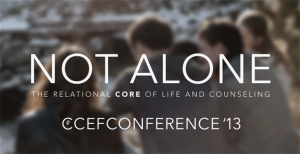 We’re pleased to let you know that three of our own–Breanna Elam, Anita Swayne, and Wanda Williams–will be in Frisco for the next few days at the CCEF Conference on counseling. Some of the plenary sessions will be broadcast live for free. But we’ve asked our “emissaries” to send a few notes in real-time about what they’re learning while immersing themselves in the relational aspect of all good counsel. Accuse me of overplaying my hand, but if this isn’t a picture of faithful presence to one another in microcosm I don’t know what is. Look for their comments on the website in the days to come.
We’re pleased to let you know that three of our own–Breanna Elam, Anita Swayne, and Wanda Williams–will be in Frisco for the next few days at the CCEF Conference on counseling. Some of the plenary sessions will be broadcast live for free. But we’ve asked our “emissaries” to send a few notes in real-time about what they’re learning while immersing themselves in the relational aspect of all good counsel. Accuse me of overplaying my hand, but if this isn’t a picture of faithful presence to one another in microcosm I don’t know what is. Look for their comments on the website in the days to come.- We’ve heard from some of you who have an interest in serving our school age kids in 2nd hour sunday school. We need to hear from more of you–either as willing teachers or assistants. Let us hear from you.
- Finally, we’ll see you Sunday evening around 6, as the autumnal sun starts to make its dive. It’s the other SNF–the Sunday Night Fellowship–the one without commercial interruption,
 *****
*****
Sunday night we’ll play, but in due course we’ll be giving more time to pray. So if you will, pray:
- for our ladies mining the wisdom of others at the CCEF conference
- for our time of interview and Q&A with our elder candidates, Jim Akovenko and Hugh Comer, (and for their upcoming exams October 19th)
- for all those who suffer among us, including Don and Helen Johnson, Tom Headland, and more recently, Dave Farah’s sister, Grace Watkins, who just had heart valve replacement surgery
- for the hard and holy work of being faithfully present to one another
See you Sunday (and would love to see you on time at 9:30!), Patrick